Moon Jae-in from South Korea's Democratic Party is set to win the country's presidential election with 41.4 percent support, according to a joint exit poll held by three television stations on Tuesday.
Moon was followed by conservative Hong Joon-pyo with 23.3 percent, and centrist Ahn Cheol-soo in third place with 21.8 percent.
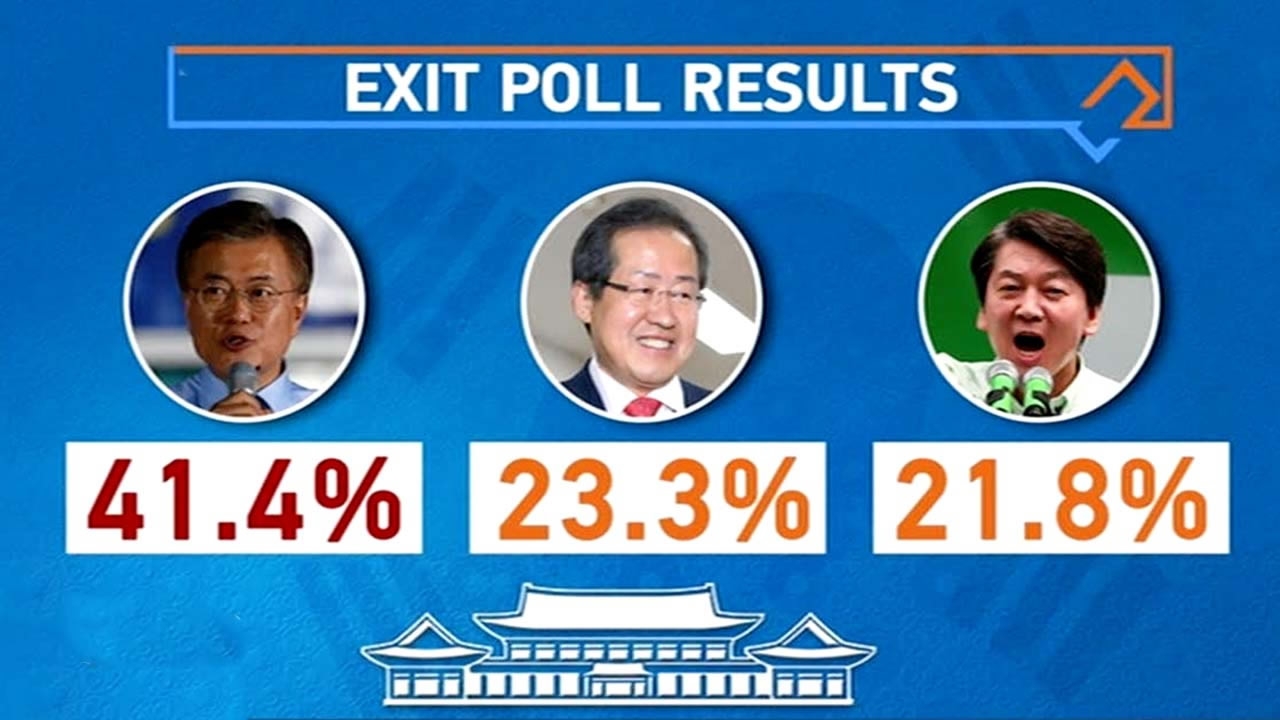
CGTN Graphic
If the exit poll is accurate, South Korean voters have chosen Moon from 13 registered candidates as a replacement for the impeached president Park Geun-hye, who is currently on trial for corruption charges.
As of 10:45 p.m. local time (1345 GMT Tuesday), Moon had 38 percent of some four million votes counted so far, while Hong in second had 28.2 percent, and third-placed Ahn had 21.2 percent, according to the National Election Commission (NEC).
"It will mark the victory of the people's desperate wish for a government change. We did our utmost to help realize this aspiration of the people, and I believe that was the driving force that enabled our victory today," Moon told his supporters and party officials at the party's Seoul headquarters.
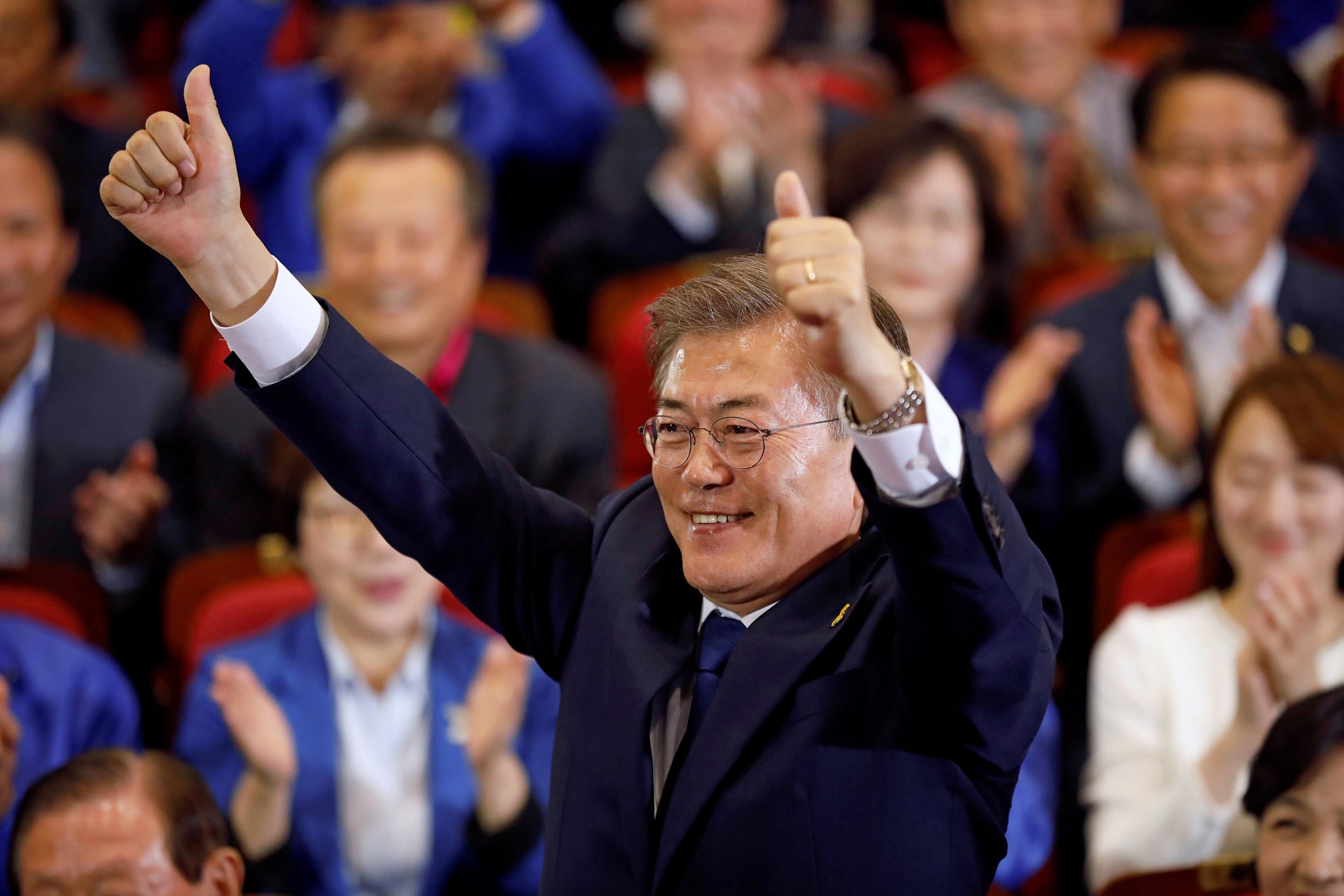
Moon Jae-in, the presidential candidate of the Democratic Party of Korea, poses for photographs as he watches a television report on an exit poll of the presidential election in Seoul, South Korea, May 9, 2017. /VCG Photo
"We will accomplish the two tasks given to us, reform and national unity that the people of this country desire," added Moon.
Hong, though defeated, suggested that his winning of over 20 percent of all votes means success in some way.
"If the outcome of the exit poll is true, I will be happy to have rebuilt the party that had collapsed," he told reporters.
The former ruling party, previously called the Saenuri Party, was split in two after the defection late last year of 33 lawmakers who backed the parliamentary impeachment of then-president Park. They later created the Bareun Party in January.
South Korea's acting President and Prime Minister Hwang Kyo-ahn is expected to make a phone call to the new president and offer his resignation on Wednesday, reported Yonhap citing Hwang’s office.
The election to select the country's 19th president kicked off at 6:00 a.m. local time (2100 GMT Monday) and finished at 8:00 p.m. (1100 GMT Tuesday).
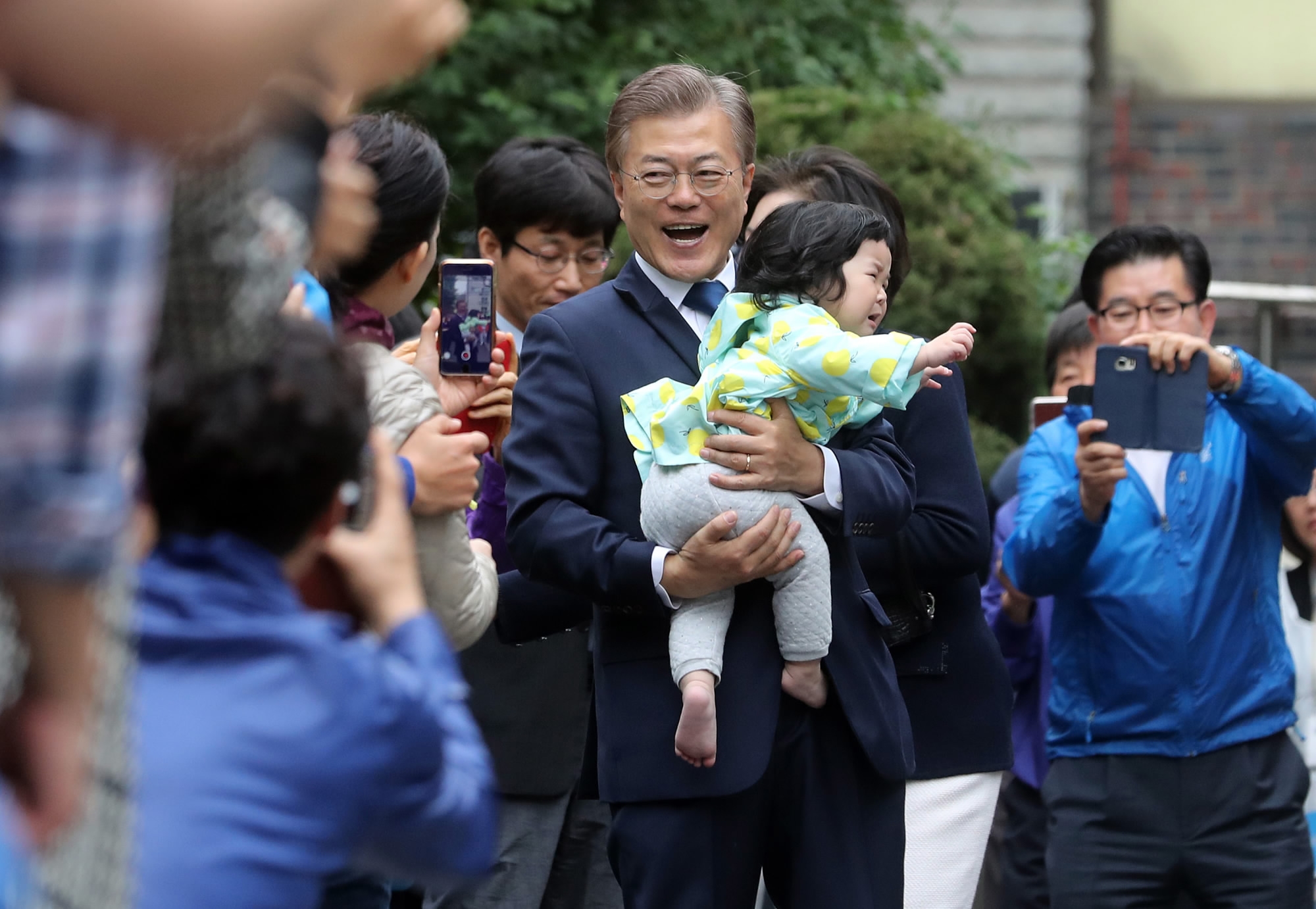
Moon Jae-in arrives to cast his ballot at a junior high school in Seoul, South Korea, May 9, 2017. /VCG Photo
A record high of 15 candidates initially registered with the election commission, with two withdrawing their candidacy in the run-up to Tuesday's vote.
On April 17, the three-week official campaign period kicked off, and concluded on Monday.
From last Thursday to Saturday, an early voting period was conducted to enable voters incapable of casting ballots on Tuesday to vote for their favorites in advance. The early voting system, which was adopted in 2013 and first applied to this year's presidential election, generated a record turnout of 26 percent, double the size seen in early voting periods for parliamentary and local elections.
Moon’s political views
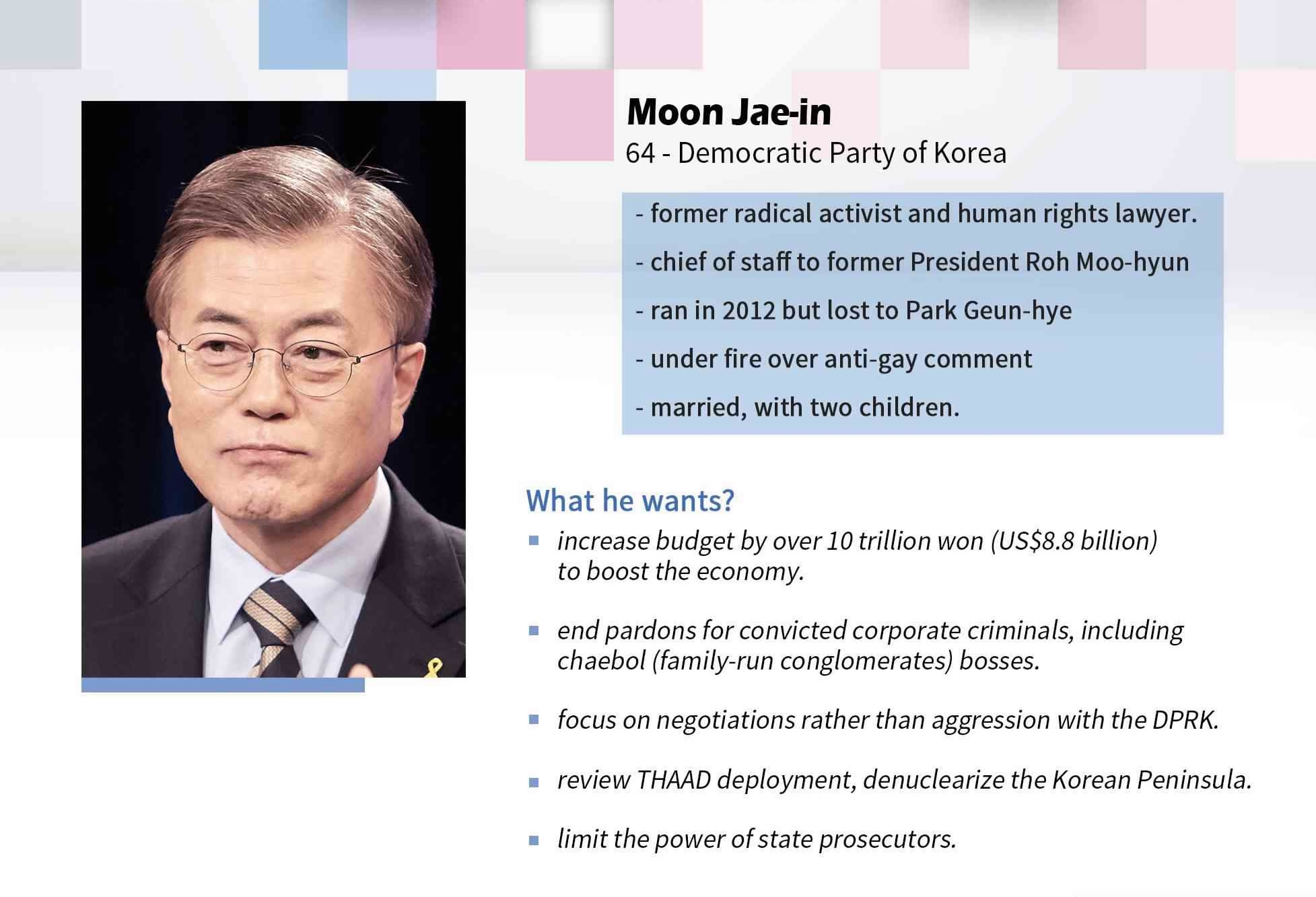
CGTN Graphic
The 64-year-old former human rights lawyer already has political experience. He was presidential Chief of Staff and narrowly lost out in the 2012 race for the presidency to Park. He is a moderate and is willing to pursue diplomatic engagement with the Democratic People’s Republic of Korea (DPRK) through dialogue and investment.
In a book published in January, Moon said South Korea should learn to “say no to the Americans,” and he has vowed to re-examine the controversial deployment of the anti-missile system, known as Terminal High Altitude Area Defense, or THAAD.
He has also called for a build-up of South Korea's domestic defenses, so the country is not dependent on the US if threatened by the DPRK.
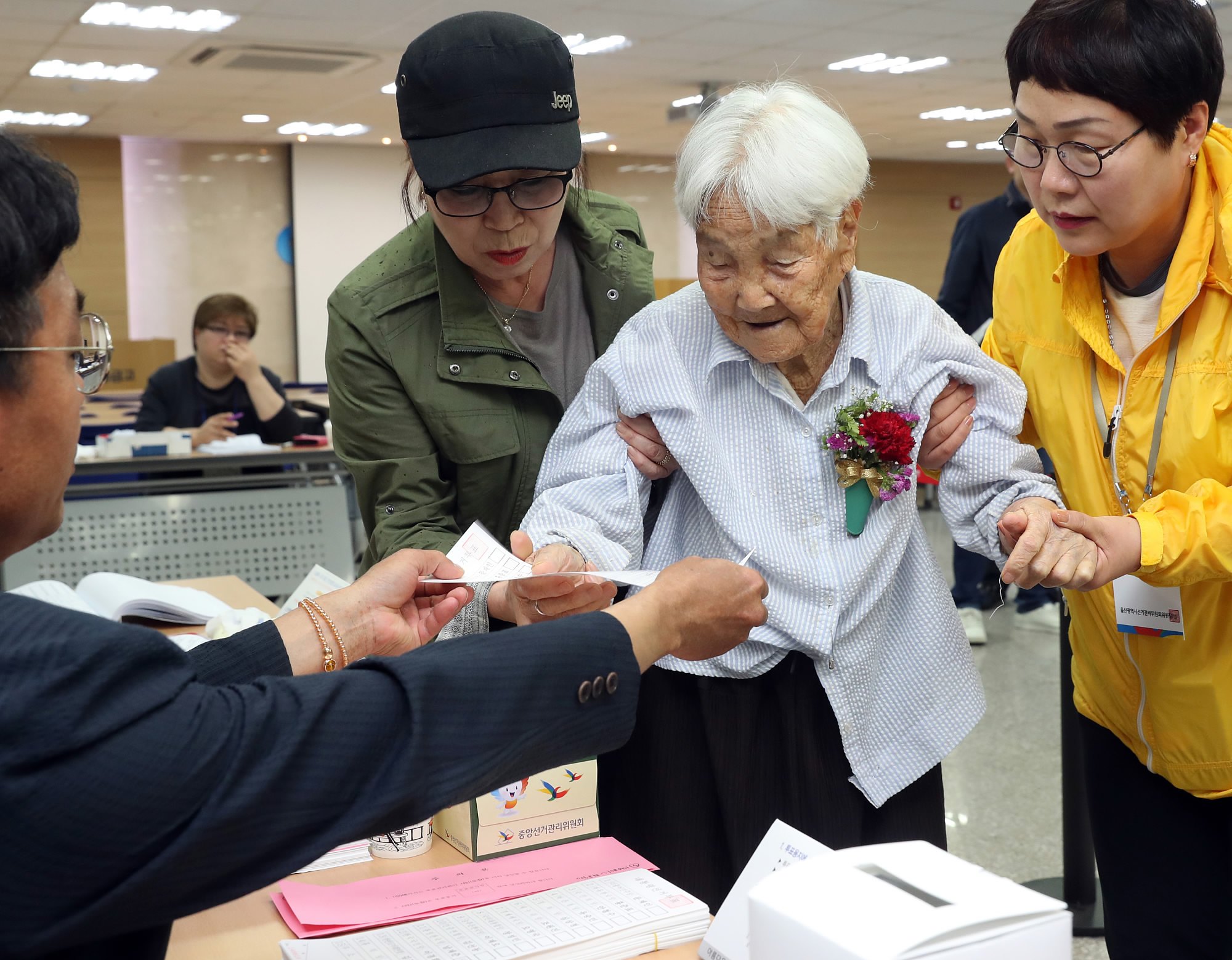
South Koreans cast their votes at a polling station during the presidential elections in Seoul, South Korea, May 9, 2017. /VCG Photo
Moon is also looking to generate jobs through massive state-funded infrastructure projects, and wants to be more approachable to the people.
What happens next?
The winner is expected to be sworn in on Wednesday after the NEC releases its official result. Moon plans to skip a lavish inauguration ceremony and start the new job right away.
Moon will name a prime minister and move to quickly fill major cabinet positions, including national security and finance ministers. The nomination of the prime minister will need parliament's approval.
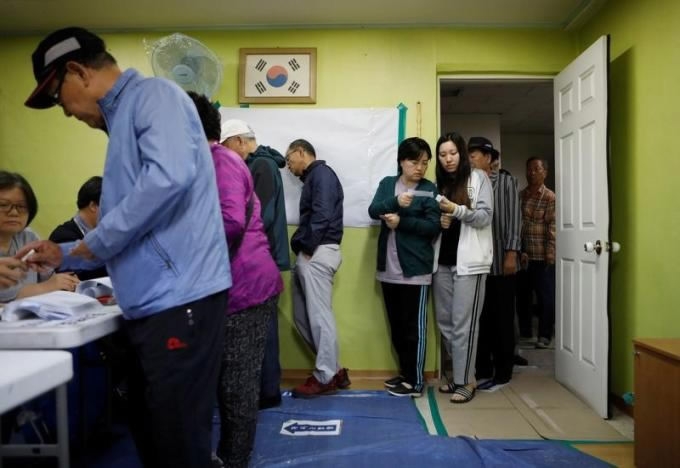
South Koreans cast their votes at a polling station during the presidential elections in Seoul, South Korea, May 9, 2017. /Reuters Photo
Why was the election brought forward?
The election to pick the country's next leader was originally scheduled for December 20, but was brought forward after the impeachment of Park earlier this year.
The constitutional court upheld the bill to impeach Park on March 10, after it was passed in parliament on December 9, 2016. The former president is accused of abuse of power, coercion, bribery and leaking government secrets, and was taken into custody on March 31.
With the president having been unseated, South Korean law required a presidential by-election to be held within 60 days.
956km










